Fly tipping: Westminster Council tries using AI to tackle issue
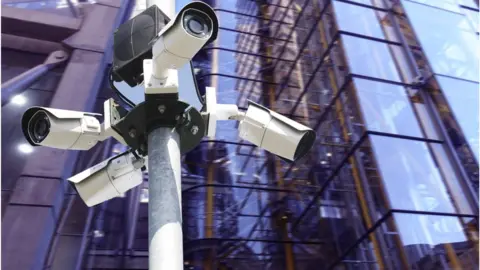 Peter Cade/Getty
Peter Cade/GettyA London council is to start using artificial intelligence (AI) to help tackle fly-tipping for a new trial.
Westminster Council has installed three CCTV cameras which use AI to track vehicle registration plates.
Other London councils are also trying to crack down on the issue, with Harrow Council also installing cameras, although without AI technology.
Office for National Statistics (ONS) data shows that London has the most fly-tipping incidents in England.
The new cameras have been installed in three fly-tipping hotspots in Westminster, where they will recognise suspected cases of fly-tipping and record the registration plates of offending vehicles.
The council will then contact the DVLA to get the vehicle owner's details and take action in the form of a fixed penalty notice (FPN), or in serious cases criminal proceedings.
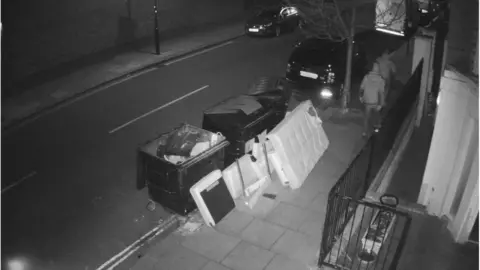 Westminster Council
Westminster CouncilWestminster Labour councillor Paul Dimoldenberg told BBC Radio London the number of fly-tipping incidents in the borough had "almost doubled" recently.
He said the council was determined to "get tough" and "issue fines" to people who were making "a complete mess" of streets in central London.
When asked if the council would prosecute residents after professionals working for them illegally dumped their rubbish, Mr Dimoldenberg clarified "the person who's dumped it should get the fine if we can possibly do so".
He also encouraged people having construction work done at their homes to "assure themselves that the people who they've contracted dispose of the waste properly and legally".
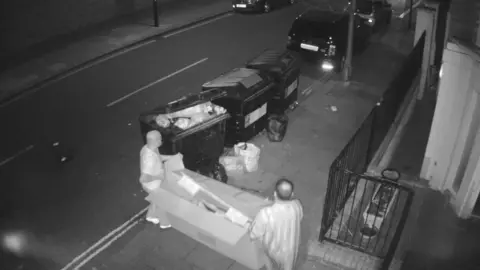 Westminster Council
Westminster CouncilAccording to data from the ONS for the financial year 2021/22, London had the highest average number of fly-tipping incidents in England, with 46 incidents per 1,000 people
London was also the only region that had an increase in the average number of incidents, with all other areas seeing a fall in cases.
Other councils in the capital are trying other techniques to tackle the issue.
Harrow Council has announced it will be installing new mobile cameras in the borough.
The move comes after the number of fly-tipping incidents rose substantially in the area.
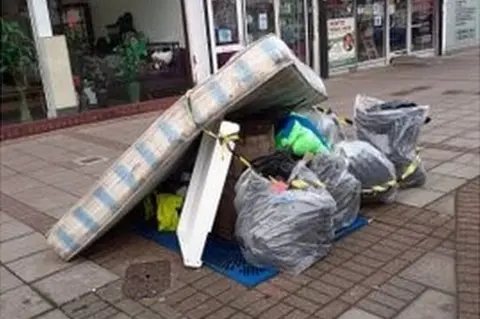 Harrow Council
Harrow CouncilConservative council leader Paul Osborn acknowledged that fly-tipping was a difficult offence to prevent.
He explained that although the council had "quite a lot of data" on the fly-tipping hotspots, it needed to "try to make sure they stay in for long enough so people are aware of them but not so long that the fly-tippers are aware of them".
Redbridge Council has a Wall of Shame, where videos are uploaded every month of the worst fly-tipping offences in the borough.
Several other boroughs have similar campaigns to expose fly-tippers, including Merton Council and Brent Council.
Brent Councillor Krupa Sheth said "our award-winning wanted campaign exposes those that selfishly and illegally dump their rubbish".
She added the campaign had led to "a 75% decrease in fly-tipping in hotspot areas".
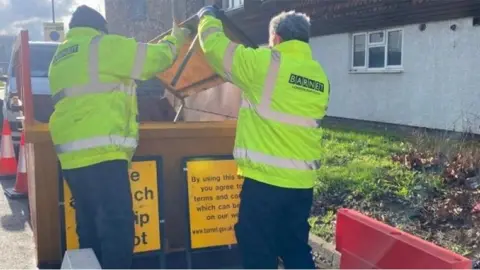 Barnet Council
Barnet CouncilBarnet Council launched a free community skips service last last year, which has been used by 3,071 households.
The council is also exploring ways to donate items deposited which are still in good condition, in order to be more sustainable.
Croydon Council has launched its Don't Mess with Croydon campaign, which was set up to send a "firm message to anyone who blights our borough with litter".
Lewisham Council is tackling fly-tipping as part of its waste management strategy 2021-2031, and will be issuing on the spot fines for people caught offending.

Follow BBC London on Facebook, Twitter and Instagram. Send your story ideas to [email protected]
